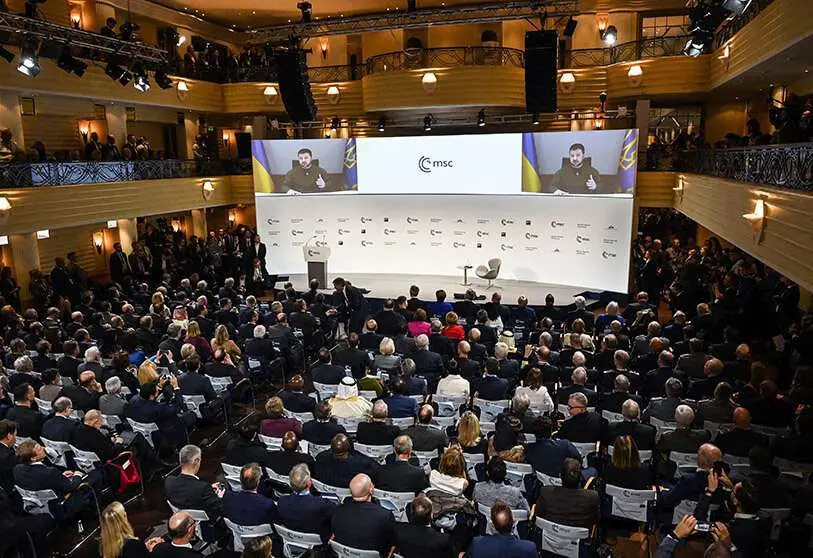Global security

The Munich Security Conference is the annual event for analysing the international situation and is the framework traditionally chosen to launch relevant messages and hold meetings without the rigid official protocol. The reflections of political leaders allow us to read between the lines and behind the scenes, which is always the most important thing, even if it takes time for us to learn the true content and scope, the harsh reality.
NATO Secretary General Jens Stoltenberg insisted on something obvious and which should place us in what is really important at the moment, which is global security. Stoltenberg is in the final stretch of his long and fruitful mandate at the head of the allies, always commanded by the American big brother, despite the French "grandeur" of the will-o'-the-wisp, and he is providing the service that the Atlantic organisation needs by stressing that the conflict in Ukraine is not just about European security, but about global security and includes China as a threat by pointing out that another war could start in the Pacific and its dimension would have unpredictable and not at all pleasant consequences.
The leaders of France, Germany, the United Kingdom, the European Union and its Foreign Ministers, together with those of the United States and China, met in Munich. We can highlight some of the conclusions of the last few hours at the Conference. The informal meeting of US and Chinese diplomats has kept the dialogue open, but the public statements are rather hostile and offer little hope of reducing the escalation of tension caused by the destruction of the spy or weather balloons that flew over the American sky, which is simply a staging of the serious differences between Beijing and Washington. Concern that the Chinese minister called on the Europeans to reflect because there are forces interested in the continuation of the war in Ukraine and the Secretary of State accused China of supplying arms to Putin, after the resurrected Vice President Kamala Harris accused Moscow of crimes against humanity during its invasion of the Ukrainian Donbas.
In such a warlike atmosphere, European allies show that they are unprepared for a medium- or long-term confrontation. Their leaders' calls for increased investment in defence, cooperation in ammunition production, accelerating the delivery of heavy weapons to Ukraine and circumventing disagreements over full support for the Ukrainian government are evidence of Europe's dangerous political and strategic weakness in the face of Putin's challenges, which also affect the energy, industrial and food dependence of Europeans who are still not fully aware of the gravity of the situation.

